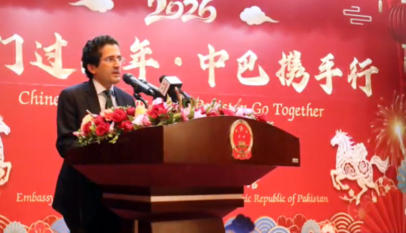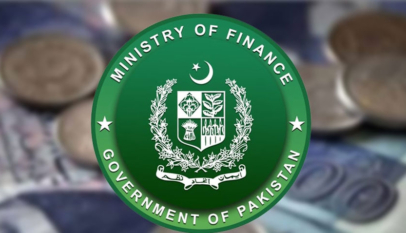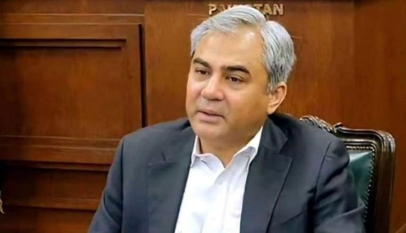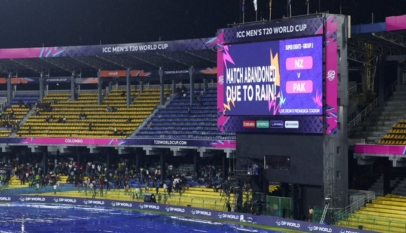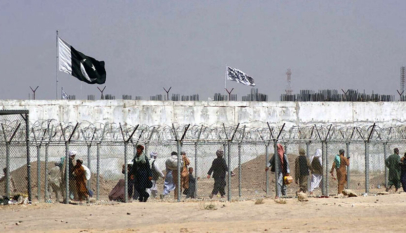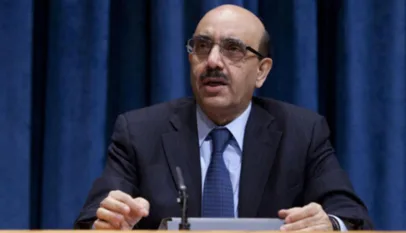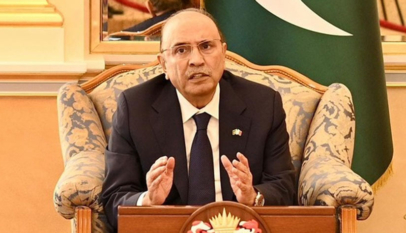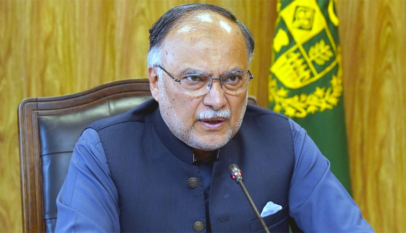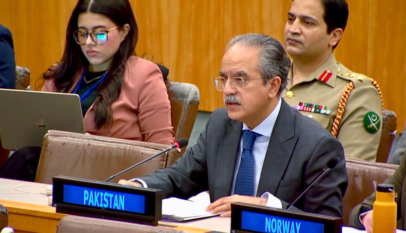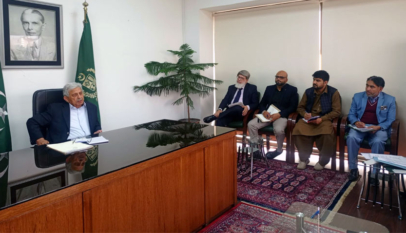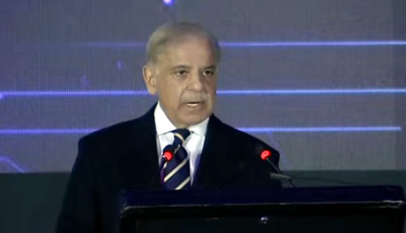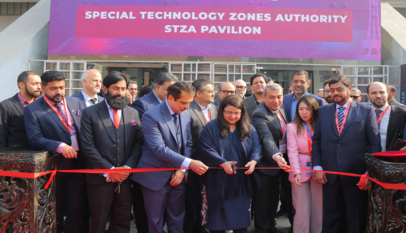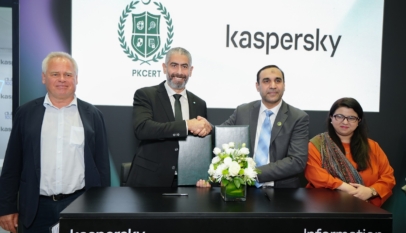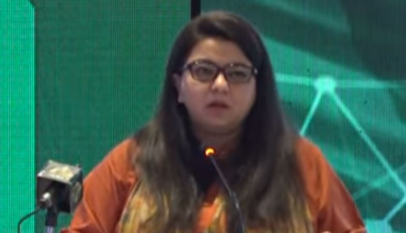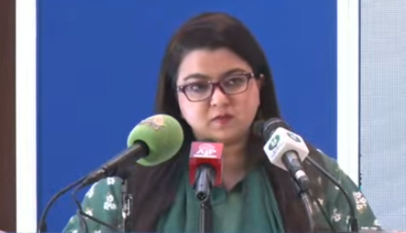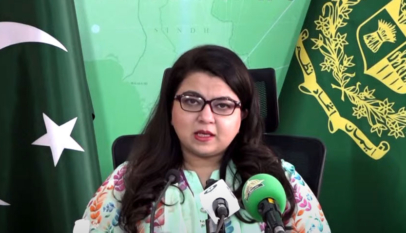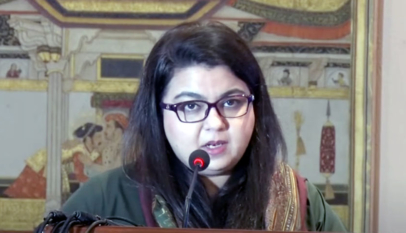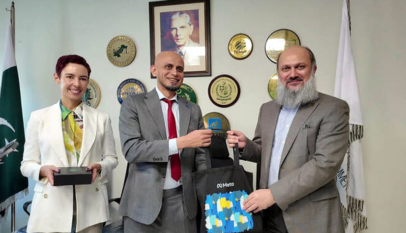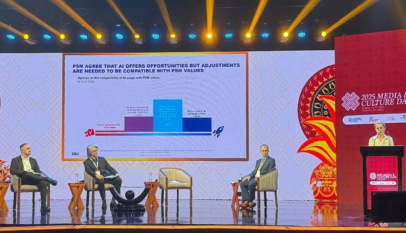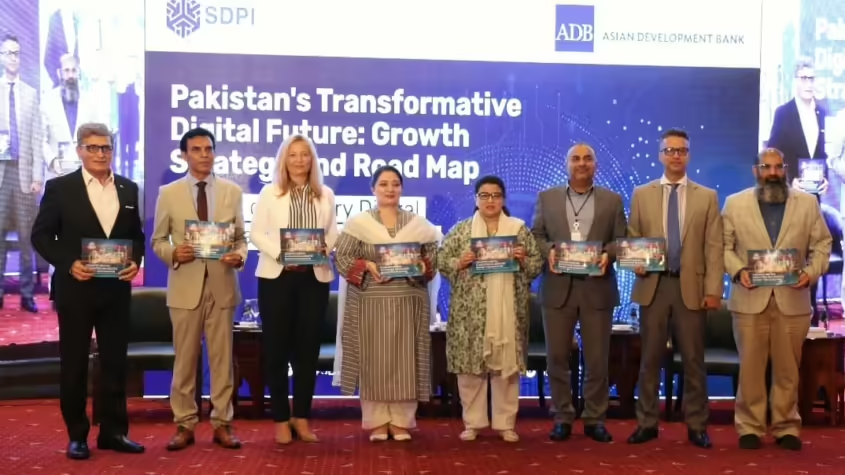
Minister of State for IT and Telecommunication, Shaza Fatima Khawaja on Tuesday said Pakistan’s digitisation and end to the prevailing gender digital divide is the top priority of the Prime Minister whereas the digital ecosystem diagnostic report is the guiding document for the government’s vision.
The Minister of State was addressing the launching ceremony of the Country Digital Ecosystem Diagnostic Report jointly prepared by the Sustainable Development Policy Institute (SDPI) and the Asian Development Bank (ADB) under the title Pakistan’s Transformative Digital Future: Growth Strategy and Roadmap here.
Shaza Fatima Khawaja congratulated the team SDPI and ADB for preparing a comprehensive analytical report and termed such reports evidence providing baseline data helpful in setting future KPIs and goals in the field of digitisation.
She announced that the Ministry of IT and Telecommunication would focus on implementing most of the Report’s recommendations.
“The IT sector exports surged to record $3.2 billion this year which is the highest ever. The Prime Minister has strong focus on digitisation of the country as the IT exports are breaking records every month. The PM vision and target is $25 billion in IT exports, and we are striving to meet it,” she added.
Information Technology is a resilient and robust sector that is growing with every passing year, whereas the PM has not slashed the budget of the IT sector and therefore was given the highest budgetary allocations in the ongoing fiscal year, the Minister stated.
“The country required complete digital transformation in the next few years, where digital economy, governance, and society are the key pillars of digitization,” Shaza Fatima said.
The government, she said is working on national policy on digitization whereas the Islamabad smart city project is also in the offing to develop a model of a digital city whereas the mapping of the federal complete was completed in this regard.
“First of all every individual needs to have internet access, however, the gender digital divide is highest in Pakistan and there is no concept of progress without it. We are preparing a comprehensive digital plan that will be rolled out by the prime minister,” she added.
She added that internet, device availability, and training will build up and grow in the digitisation realm whereas the government has allocated Rs 8 billion budget for IT training for different sectors and individuals belonging to various strata of society.
“There is no alternate route to growth and development for the country. It’s an opportune moment for Pakistan to avail the opportunity and take it as a challenge for exploring further opportunities,” she said.
Prime Minister’s Coordinator on Climate Change Romina Khurshid Alam on the occasion said that digitisation is imperative for the country’s growth and economic stability in line with the growing regional and global trends in digital modernization.
Pakistan, she said is facing severe competition due to emerging technologies and rapidly expanding digitisation, however, the Prime Minister is aware of all the challenges and therefore has aligned his vision to transform the challenges into opportunities by ensuring grassroots-level digitisation.
Executive Director, SDPI, Dr Abid Qaiyum Suleri in his welcome remarks said the study is a diagnostic study on Pakistan’s future in IT, whereas the current government is giving extreme importance to IT and digitisation.
He added that a special group has been formed at the Ministry of IT and Telecommunication with the clear objective of pursuing digital initiatives in various sectors to minimize human interference like FBR to advance revenue mobilization.
Dr Suleri said digitisation will help the country in improving governance system, whereas during last fiscal year 80% transactions have been done online worth Rs 840 million.
“Without proper diagnosis, we won’t be able to embark on the fourth digital technology revolution. Strategic infrastructure and digital governance are important for improving public service delivery and digital government,” he said.
The country, he said is gradually moving towards digital society and the launch event is not showcasing the report but unveiling of the vision of digital Pakistan.
“We focus more on knowledge and research partnerships that work on analytics,” he added.
The Deputy Country Representative of ADB-Pakistan commended the authors and experts for developing the research document and anticipated that insights from the study would add value to the process of guiding policymakers for improved investments in digitisation sector.
“ADB is ready to support the government and move this journey. The Report provides the comprehensive status of the current stage and future opportunities to proceed in the IT and digitisation sector,” he added.
Dr Jordanka Tomkova, IT and Digitisation Expert presented the technical insights of the report. She said the report is a collaborative effort and a joint journey accomplished in six months.
In the global context, digitisation is a complex thing that involves many elements to join whereas all the countries need to forge collaborations in achieving the goal, she added.
Dr Tomkova said there is a four-pillar approach to embracing digitization through digital infrastructure, government, society, and economy.
She mentioned that Pakistan’s E-Government Development Index was underperforming at regional, sub-national, and international levels, whereas it ranks high in knowledge, technology, and creative outputs with a 40th rating in the global innovation index.
Pakistan’s performance is an asset as it is ranking high on future technologies, digital economy, and others but low on human security, she said, adding, “Connectivity and coverage are rising in Pakistan especially mobile penetration with skyrocketing figures: 80% 3G coverage and 76% 4G coverage.”
Digital infrastructure, she said is a huge industry and economic growth indicator which is growing in Pakistan with the rise in mobile phone access.





